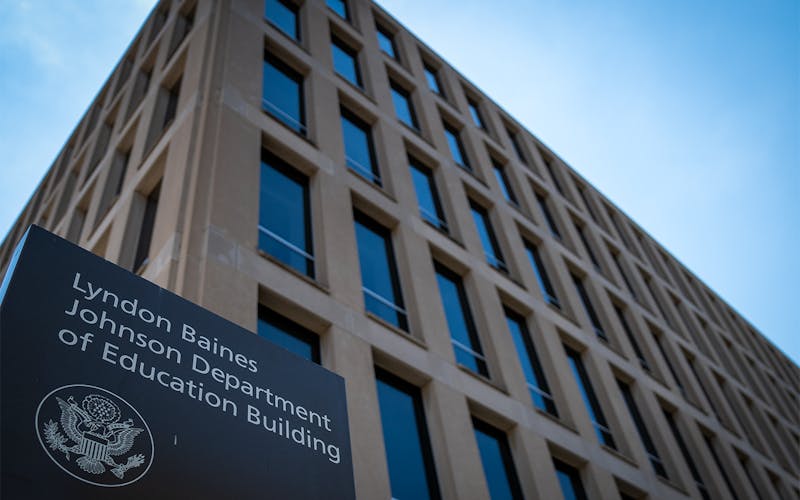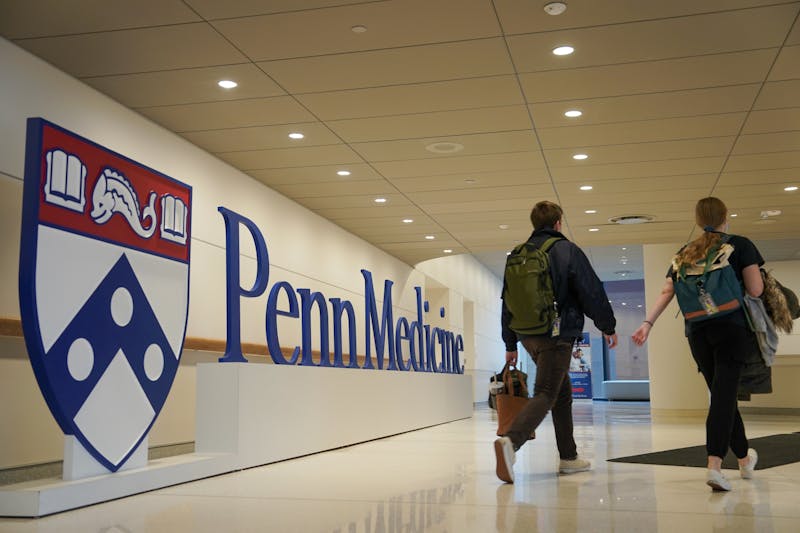Sweeping changes in Philadelphia's government structure and its charter are crucial if the city is to weather its financial crisis, University professors said yesterday. Mayor Wilson Goode announced last week that the city could go bankrupt by December. According to three University professors, the city needs structural change as much as it needs spending cuts if it is to avoid rapidly-approaching bankruptcy. · Philadelphia's tax structure, which is based heavily on its almost-five-percent wage tax, has forced businesses considering locating in the city to look elsewhere. "Higher taxes ring the death knell of the city," said Professor Theodore Hershberg, whose recent column in the Philadelphia Inquirer outlined his proposals for restoring financial stability. Finance Professor Robert Inman has studied the effect that the city's wage tax has on potential businesses. His findings show that Philadelphia lost about 130,000 jobs to the suburbs between the mid-1960s and the mid-1980s due to its wage tax alone. Philadelphia residents pay a 4.96 percent wage tax, and commuters pay 4.31. So city employers who want to attract people must offer a higher salary than their suburban competitors in order to compensate for the tax, Inman said. About 60 percent of the jobs lost to the suburbs, he said, were lost because of the wage tax. And Hershberg said that higher city taxes levied to pay for social services drive residents and businesses out, harming the tax base and forcing a downward spiral. Funding for social services must be shared by the state. Both Inman and Public Policy and Management Professor Anita Summers believe that property taxes are a less damaging way to raise revenue than wage taxes. · State and federal government officials equate giving more money to Philadelphia to "watering the desert," said Summers. She suggested establishing an independent and powerful board of experts to restore the city's financial health. Summers' board would consist of state and local government officials, outside public finance experts and chief executive officers from local companies. A similar board brought New York City through its financial crisis in the mid-1970s. The creation of a board of respected leaders, Summers said, would give banks the confidence to loan the city enough money to pull through its cash crunch. Earlier this month, the city failed to float $375 million in short-term notes after banks refused to back the notes. In the past, officials floated about $220 million in notes before the end of the year in order to tide the city over until revenues came in during the winter. Inman recommended that the city sell a similar amount of notes now, which could be backed by revenues received during the winter. The rest of the money needed could be raised by a long-term bond sale. The bonds would have to be backed by a tax dedicated to repaying them, such as a sales tax. · Hershberg said he would like to see changes in Philadelphia's charter. Approved 40 years ago, the charter contains protections which limit the appointment powers of city department heads. He said they have left city government in a "straitjacket," since departments are unable to build effective management teams. Hershberg said that to change the charter, City Council and the administration would appoint a commission to suggest change, and the recommendations could either be filtered through Council or submitted directly to a referendum. Both Summers and Hershberg said increasing productivity of city workers should be part of a more efficient spending pattern. Summers recommended linking wage increases to productivity increases. Hershberg said that new incentive mechanisms are needed. He added that wage raises for city workers have increased faster than increases in the city's revenue base, and that those raises should increase at a slower or equal rate. "The city and suburbs have got to find ways to work together or they will not realize their potential," Hershberg said.
The Daily Pennsylvanian is an independent, student-run newspaper. Please consider making a donation to support the coverage that shapes the University. Your generosity ensures a future of strong journalism at Penn.
DonatePlease note All comments are eligible for publication in The Daily Pennsylvanian.







